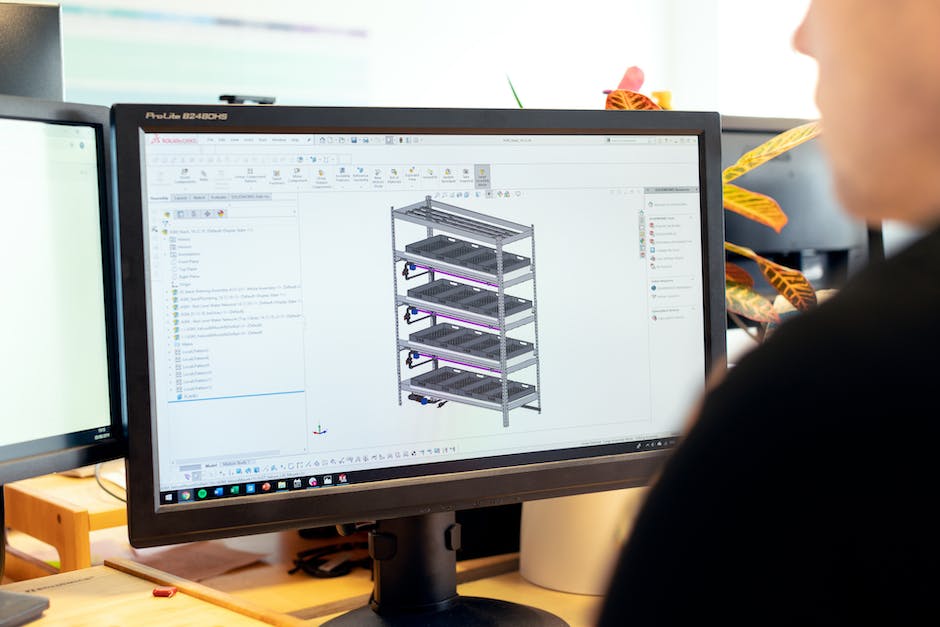When interviewing a civil engineer, it’s crucial to delve deeper into their understanding and application of fundamental civil engineering concepts, their problem-solving skills, and their practical experience combined with project management skills. This evaluation allows you to gain insights about their capacity to liaise with various players in the field, their approach to challenges and their proficiency in dealing with the overarching demands of a project. The ability to tackle complex tasks and provide innovative solutions plays an indispensable role in this profession.
Understanding of Fundamental Civil Engineering Concepts
How Proficient Are You With Engineering Software?
Civil engineering professionals often rely on specific software tools to help with design work, project management, and simulations. Tools like AutoCAD, STAAD Pro, or GIS software are commonplace in this industry. One way to gauge a candidate’s technical competency is by asking them to explain how they have utilized engineering software in their past projects. Their answer can provide insight into their ability to leverage technology in their work, adapt to new tools, and how they might handle potential technology-related challenges.
Experience with Soil Bearing Capacity Testing
The stability of any building structure is largely dependent on the soil’s ability to support its weight. Hence, understanding how to conduct and interpret soil bearing capacity tests is vital for every civil engineer. By asking the candidate about their methodologies for performing these tests, you can assess their knowledge on geotechnical factors which are crucial in structural design and stability. The candidate’s response can also highlight their problem-solving abilities, as they may describe how they handled complex or unique scenarios during testing.
Application of Principles in Environmental Engineering
Civil engineers should have a sound understanding of environmental engineering principles. This includes managing waste and pollution, water and wastewater treatment, and environmental sustainability concepts. These topics can lead to in-depth discussions about potential environmental challenges they might face in their projects and how they would address them.
Understanding of Structural Analysis and Design
The crux of civil engineering lies in structural analysis and design. Hence, candidates should be able to explain theories such as bending moment, shear force, stress-strain relations, and modal analysis. They could also mention how they’ve applied these concepts in their past projects, illustrating their ability to integrate theory and practice effectively.
Expertise in Construction and Project Management
Project management expertise is also part and parcel of a civil engineer’s role. Candidates’ knowledge of project planning, leadership skills, and an understanding of construction processes can be assessed with questions geared towards their past experiences. This could include dealing with deadlines, managing teams, handling budget constraints or finding ways to streamline processes without compromising quality.
Familiarity with Transportation Engineering Concepts
Transportation engineering is a significant facet of civil engineering, encompassing the design and maintenance of transport systems. Candidates should demonstrate their familiarity with transportation planning, traffic flow theory, highway design criteria, and traffic safety measures. Their responses can offer insights into how they approach planning and infrastructure design from a functional and safety perspective.

Problem-solving Skills
Provoking Problem-solving Skills in Civil Engineering Candidates
One of the most telling signs of a competent civil engineer is their ability to solve complicated problems, especially in situations where projects do not go as planned. These abilities are a testament to their critical thinking skills and highlight their capacity to work under pressure.
Questioning about past experiences is a great strategy to understand a candidate’s problem-solving capabilities. A powerful question could be ‘Describe a time when a project didn’t go as planned and how you handled it?‘ This inquiry encourages candidates to delve into details of past experiences and discuss how their problem-solving skills came into action when things took an unexpected turn.
The candidate’s response provides invaluable insights into their skills to adjust to changing conditions, reassess project plans, and find effective solutions. The stories they iterate can shed light on their resilience, resourcefulness, decision-making skills, and adaptation to the pressures of their role.
Another insightful question could be ‘Can you share an innovative solution you proposed in a Past project to solve a complex problem?‘ This question probes into their ability to think out of the box. It also puts their creative thinking abilities to test by asking them to recollect times when they took the initiative to navigate through a complicated situation.
Finally, an applicant’s responses to these questions should help draw a coherent line between their theoretical knowledge and practical experience. A candidate with good problem-solving capabilities ideally will have a balance of both technical knowledge and hands-on experience, ensuring that they can put their skills into practice efficiently when required. A civil engineering candidate’s ability to tackle day-to-day challenges calmly and practically can go a long way in contributing to the success of your projects and the overall company.
Innovative Solutions and Adapting to Change
Remember, civil engineering doesn’t exist in a vacuum. Solutions that worked well for one project may not be the best fit for another due to variations in parameters such as geographical location, client expectations, and available resources.
Evaluating a civil engineer’s problem-solving skills during an interview can provide vital information. You want your future engineers to not just be able to execute a plan, but to devise one, modify it and, if needed, reinvent it. An engineer who demonstrates apt problem-solving skills and exhibits creative innovations will, without a doubt, be a valuable addition to your team.

Practical Experience and Project Management Skills
Evaluating Project Contributions: Understanding the Civil Engineer’s Role
Start by probing their hands-on experience with projects. Construct your questions around the major projects they’ve participated in, focusing on their specific contribution. One of the most effective questions you can ask is, ‘Can you describe the most significant project that you’ve worked on and your contribution to it?’ Their response can provide a strong indication of their abilities as a civil engineer, and outline the level of complexity they’re comfortable working with.
Time Management and Leadership: Can They Handle Deadlines and Delays?
Next, aim to assess their project management and leadership skills. ‘How do you handle deadlines and project management if there are delays in construction due to unforeseen circumstances?’ is a recommended question. Such circumstances are commonplace in the construction industry, and your candidate’s answer will give you a glimpse into their problem-solving skills, adaptability, and ability to remain calm under pressure. They should show proficiency in making immediate, effective decisions and exhibit a strong sense of responsibility, all while maintaining project schedules and quality.
Budgeting Skills: Managing Project Monetary Resources
Including questions about managing project budgets offers another layer of understanding their responsibility and efficiency. For example, ask them, ‘Could you tell about a time when you had to adjust a project due to budget constraints?’ This will not only give an insight into their financial management skills but also about their ability to introduce cost-saving measures and innovative alternatives while keeping the project’s objectives intact.
Career Achievements: Understanding Their Professional Journey
Finally, remember to ask about their career achievements. You can phrase this as, ‘What has been your most significant professional achievement in Civil Engineering to date?’ The response will allow you to evaluate their genuine passion for the field, what motivates them, and if they are committed to continuous learning and professional growth.

Remember, the hallmark of an exceptional civil engineer lies not just in their technical prowess, but also in their ability to navigate unexpected complications and still deliver impressive results. By asking pointed questions that probe their understanding of civil engineering principles, their problem-solving abilities, and their project management know-how, you can help ensure your team is led by a thoughtful, innovative, and effective civil engineer. Ultimately, the answers to these questions can unveil the practical wisdom they’ve amassed from their past experiences and give you an insight into how they can spearhead the future projects.


It has been simply incredibly generous with you to provide openly what exactly many individuals would’ve marketed for an ebook to end up making some cash for their end, primarily given that you could have tried it in the event you wanted.
I’m planning to start my blog soon, but I’m a little lost on everything. Would you suggest starting with a free platform like WordPress or go for a paid option? There are so many choices out there that I’m completely confused. Any suggestions? Thanks a lot.
Hi there I am so thrilled I found your website, I really found you by mistake, while I was browsing on Yahoo for something else, Anyhow I am here now and would just like to say thanks a lot for a tremendous post and a all round exciting blog (I also love the theme/design), I don’t have time to go through it all at the minute but I have saved it and also added in your RSS feeds, so when I have time I will be back to read more, Please do keep up the awesome job.